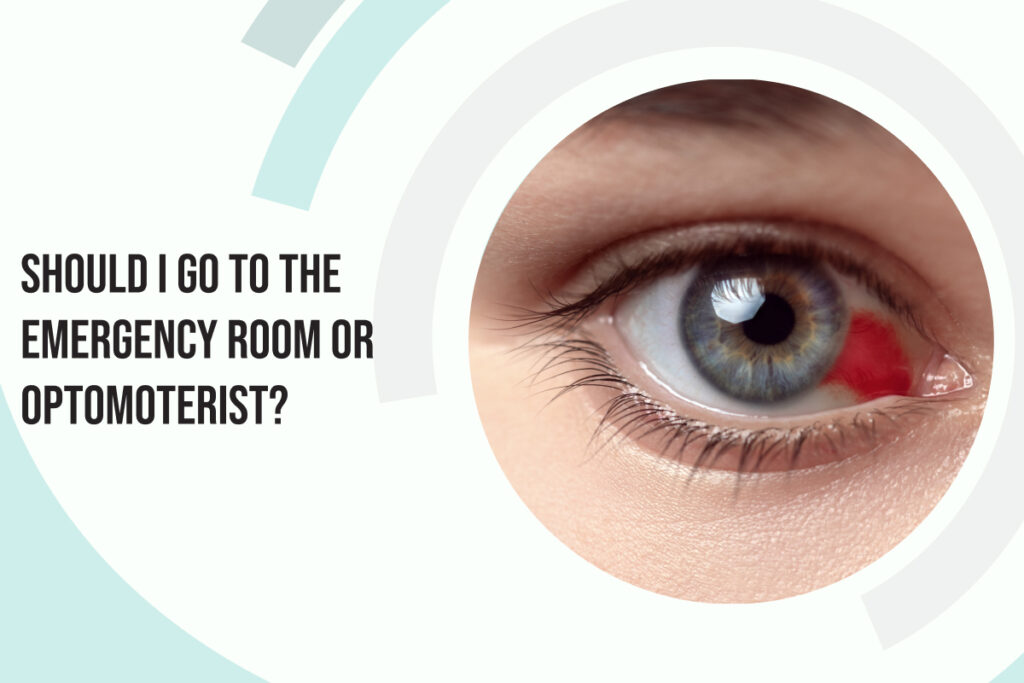Astigmatism is a medical term, it refers to an eye that is more curved than it should be. This is a common condition, affecting some one in three people. It’s fairly easy for optometrists to pick up on astigmatisms, and for most people the condition is one they are born with. However, it is possible for astigmatism to develop later in life.
Why does an eye that is a bit too curved affect vision? It doesn’t sound like a terribly serious affliction. Unfortunately, even the slightest curve can lead to a change in the way light enters your eyes. This means light isn’t properly distributed and your vision is affected as a result.
If you have developed an astigmatism later in life, it isn’t always easy to tell. It’s not like you can examine the shape of your eye. There are some telltale signs, and if you are experiencing even one of these, it’s important to book an appointment with your optometrist as soon as possible. At Lethbridge Vision Centre we offer comprehensive exams, whether your symptoms are due to an astigmatism or something else we will figure it out.
Here are some common symptoms of astigmatism:
Blurry vision
Blurry vision is a sign of many different eye health issues, and one of the most common symptoms of astigmatism. You may find it hard to see details on objects, or read small print. If you drive, this could be dangerous as it makes it more difficult to see street signs.
Strain and discomfort
Having an astigmatism makes it harder to see. As your eyes work overtime to see clearly, you will likely notice some discomfort. Overuse of the eye muscles, especially when reading or working on screens for extended periods, can lead to eye fatigue.
Squinting
People with astigmatism may subconsciously squint in an attempt to improve their vision by narrowing the aperture of light entering the eye. If you have found yourself squinting to see clearly while reading, watching TV, going to the store, or driving it could be a sign of an astigmatism.
Glare or light halos
Astigmatism affects the way light enters your eyes. When you have one it is common to experience a glare or light halos in your vision. This can vary depending on the severity of your condition.
Trouble seeing in low light
Astigmatism can reduce contrast sensitivity, which is the ability to distinguish between objects and their backgrounds. This is especially problematic in low-light conditions where there is less contrast to begin with. Reduced contrast sensitivity can make it difficult to see details and objects clearly at night.
Headaches
Some people with astigmatism may begin to experience headaches as their eyes strain and try to see clearly. When the eyes are working harder than usual to overcome astigmatism-related vision issues, it can lead to discomfort and headache.
These are a few of the most common symptoms and problems that can be the result of astigmatism. If you’ve experienced any of these it is worth a trip to the optometrist to see what is going on. To address these issues you will likely undergo a comprehensive eye exam. Simple visual acuity and refractive tests will be able to tell you whether or not your symptoms are the result of an astigmatism.
So, what happens if you do have astigmatism?
The good news is that treating astigmatism is straightforward. Once astigmatism is diagnosed, your optometrist will determine the degree of astigmatism and its axis to prescribe corrective lenses. You can choose glasses, contacts, or both for daily wear. Depending on the severity of your astigmatism, you may consider surgery. There are refractive surgeries that provide a permanent fix.
At Lethbridge Vision Centre, we offer comprehensive exams and personalized care to address your vision concerns and provide the most suitable solutions for your unique situation.Remember, clear vision not only enhances your daily life but also ensures your safety and well-being, especially when it comes to activities like driving. So, if you suspect you have an astigmatism or are experiencing any vision-related issues, don’t hesitate to schedule an appointment with your optometrist for a thorough evaluation and expert guidance on the most appropriate treatment options. Your vision is too important to overlook.







